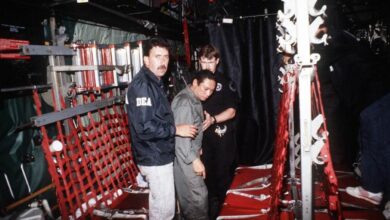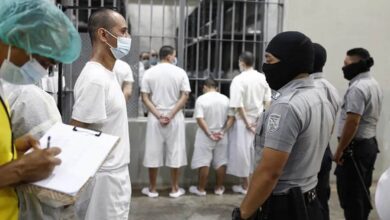Life Sentence for Key Former Senator in Haitian President’s Murder
Former Haitian Senator John Joel Joseph received a life sentence in Miami for his involvement in the assassination of Haiti's President Jovenel Moise, intensifying the island's already precarious political landscape.

Photo: Le Nouvelliste
The Latin American Post Staff
Escucha este artículo
Leer en español: Cadena perpetua para ex senador clave en el asesinato del presidente haitiano
A Life Sentence for Joseph: Impact on Haiti's Political Landscape
In a significant development that has drawn international attention, former Haitian Senator John Joel Joseph was sentenced to life imprisonment by a Miami court for his involvement in the assassination of Haiti's President Jovenel Moise. This high-profile case, stemming from the July 2021 murder, has sent shockwaves through Haiti, exacerbating the nation's political instability and fueling a dire humanitarian crisis.
The assassination of President Moise, executed in the dead of night at his Port-au-Prince residence, plunged Haiti into deep political turmoil. The void in leadership gave rise to violent armed gangs who rapidly expanded their influence across the island, contributing to an escalating humanitarian emergency that has gripped the nation.
Joseph, a former senator, was a prominent figure in this intricate plot that led to the killing of President Moise. In October, he became the third among 11 defendants to plead guilty in this international case. The group of defendants includes Colombian mercenaries, alleged to be the perpetrators of the assassination, and foreign businessmen suspected of funding the conspiracy.
Unveiling Joseph's Critical Role
According to his proffer statement, Joseph played a critical role in the planning of the assassination. He was reportedly present at several key meetings where the murder was discussed, including on the night before the tragic event unfolded. His admission revealed his active participation in providing logistical support for the plot. This activity included arranging rental vehicles, facilitating connections with local gangs to gain their support, and efforts to acquire weapons for the operation.
The seriousness of Joseph's involvement is underscored by the fact that he is not the first to receive a life sentence in this case. Earlier, a Chilean-Haitian man and a retired Colombian army officer, both of whom pleaded guilty, were similarly sentenced to life imprisonment. Their convictions and sentences underscore the widespread and international nature of the conspiracy that led to President Moise's assassination.
Further adding to the complexity of this case is Mario Palacios, another former Colombian soldier, who initially pleaded innocent but is expected to change his plea. This anticipated shift in Palacios' legal stance indicates the ongoing investigations and legal proceedings that continue to unravel the layers of this international plot.
Informer's Role and Future Sentencing
Moreover, the involvement of a former U.S. Drug Enforcement Administration (DEA) informer, who also pleaded guilty to his role in making the mission appear like a U.S. government operation, adds another dimension to this multifaceted case. The informer's sentencing, expected early next year, will likely provide additional insights into the depth and breadth of the conspiracy.
The assassination of President Moise and the subsequent legal proceedings in Miami have shone a spotlight on the fragility of Haiti's political and social fabric. The case illustrates the intricate web of international connections and the lengths individuals and groups may go to effect political change through violence.
Joseph's Sentence: A Critical Moment for Haiti
Joseph's life sentence is more than just a legal verdict; it represents a critical moment in Haiti's ongoing struggle for stability and justice. The fallout from the assassination has not only deepened the country's political crisis but has also exacerbated the humanitarian challenges facing the Haitian people. The power vacuum left in the wake of President Moise's death has hindered efforts to address the rampant violence, poverty, and social unrest that afflict the nation.
As Haiti continues to navigate its complex political landscape, the implications of this case extend far beyond the courtroom. The life sentence handed down to Joseph serves as a stark reminder of the consequences of political violence and the importance of upholding the rule of law in times of turmoil.
Also read: Haiti's CARDH: Forced to Pause Amid Escalating Gang Violence
The sentencing of John Joel Joseph in the assassination of President Jovenel Moise marks a significant milestone in Haiti's turbulent history. It highlights the need for ongoing vigilance against political violence and the importance of international cooperation in addressing crimes that have cross-border implications. As Haiti endeavors to rebuild and move forward, the lessons from this case will undoubtedly play a crucial role in shaping the nation's future and pursuing a stable and just society.




